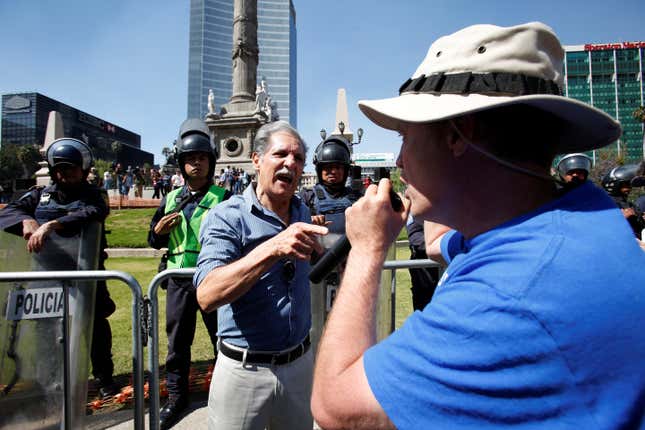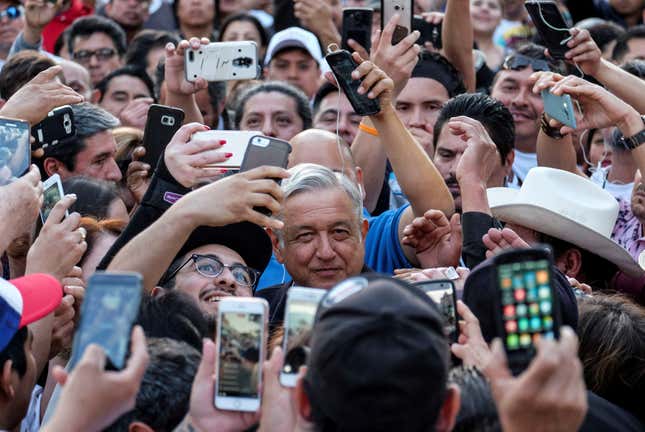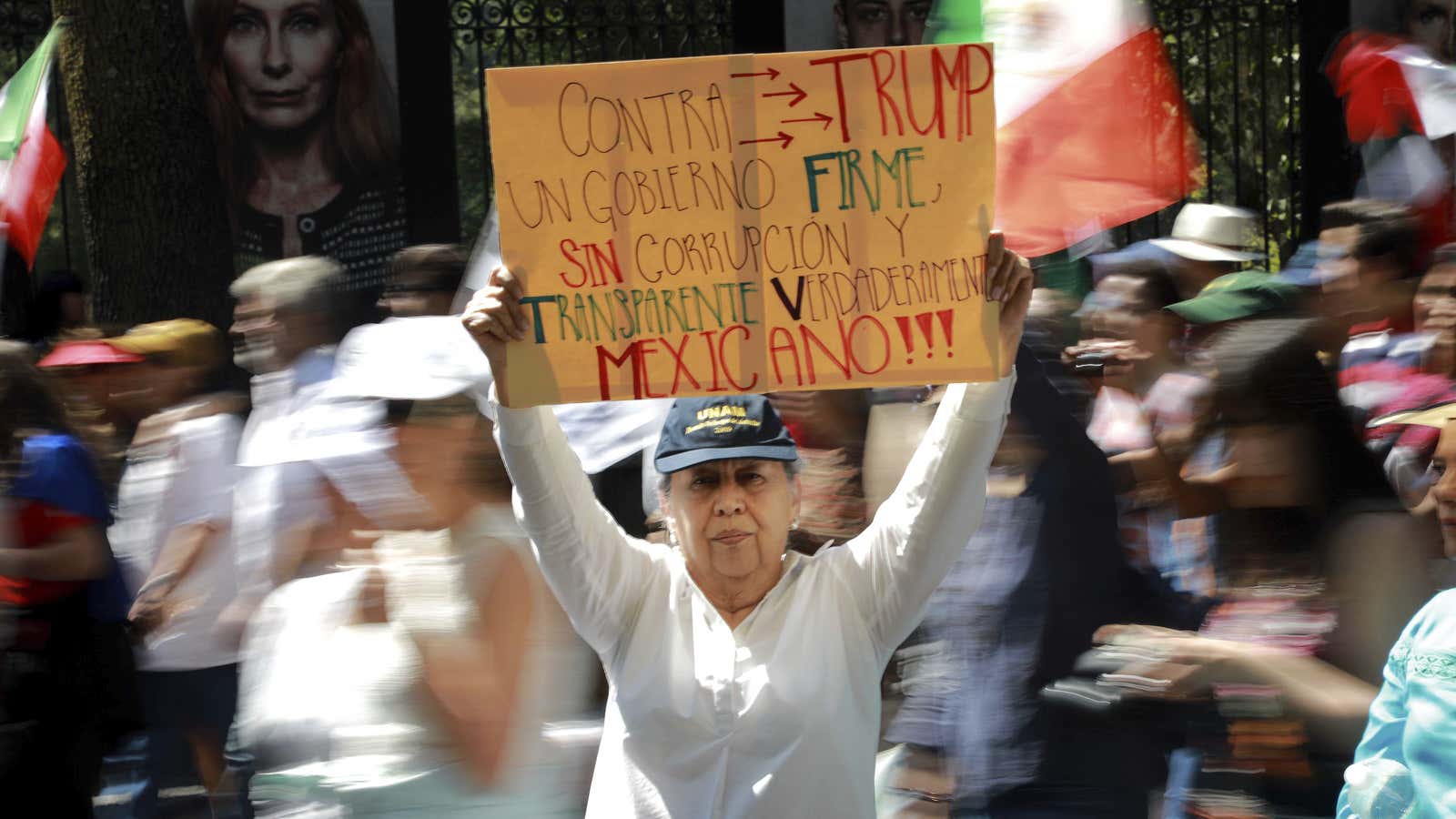Donald Trump is almost universally disliked in Mexico—nearly 90% of people there have a negative opinion of the new US president (link in Spanish). But that’s where the agreement ends.
Trump has sparked a contentious debate among Mexicans over how to deal with him. Several protests this past weekend—and the reactions to them—illustrate the range of opinions.
One march organized in Mexico City was backed by a group of civic institutions, including Mexico’s most prestigious universities, nonprofits such as Amnesty International, and corporate trade groups. The main goal was to protest Trump’s policies toward Mexico, while also pressing Mexican president Enrique Peña Nieto for transparency in his dealings with the US. The march, dubbed “Vibra México” or Mexico Vibrates, would be peaceful, non-partisan, and respectful, the organizers underscored. Attendees were asked to wear white.
But the plan was criticized by those who saw it as a veiled attempt to cover up domestic problems with patriotic unity against Trump. They called for a boycott.
“Decent protest. March and protest against Trump ‘politically correct,’ protest for gasoline hikes or Ayotzinapa, no,” tweeted a political cartoonist. (Ayotzinapa is a reference to one of the biggest scandals of the Peña Nieto presidency: the still-unresolved disappearance of 43 students from a Mexican teachers’ college.)
Meanwhile, another group, Mexicanos Unidos, or Mexicans United, called for a separate march focusing solely on Trump and explicitly avoiding criticism of Peña Nieto. As one backer said during a newscast, “the dirty laundry is washed at home.”
On Feb. 12, demonstrators in both marches clad in a variety of hues took to the streets of Mexico City—and sometimes clashed. They couldn’t even muster the unity to sing (Spanish) the national anthem at the same time, as the organizers of both protests had planned, Mexican magazine Expansión reported.

In the end, the splintered efforts had nowhere near the effect as the anti-Trump marches in the US.
Meanwhile, in the US itself, leftist politician Andrés Manuel López Obrador hosted his own anti-Trump gathering on Feb. 12, in Los Angeles. The former Mexico City mayor has profited from Trump’s insulting rhetoric toward Mexico; it has given him a rallying cry that’s buoying his own presidential aspirations. He is the frontrunner in Mexico’s 2018 race, according to polls. In Los Angeles, he touted his party’s efforts to provide legal aid to Mexicans who are in the US illegally, and pledged to launch an information campaign to convince dissatisfied Americans that immigrants are not their enemies.
Rather than a traditional protest, his gathering in LA had the air of a political campaign rally. It did attract a seemingly unified contingent, though.

